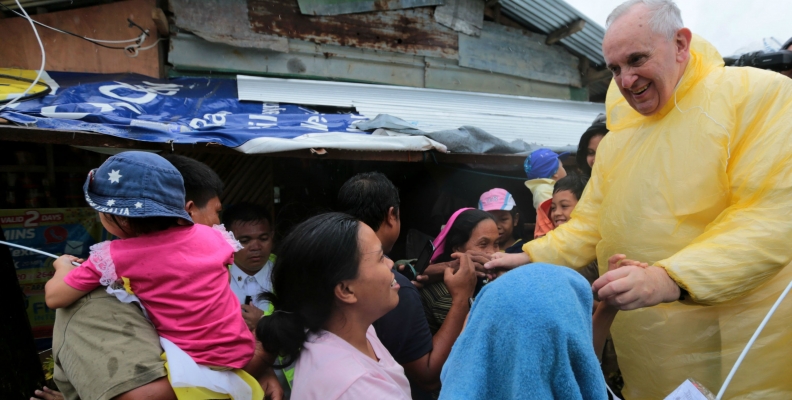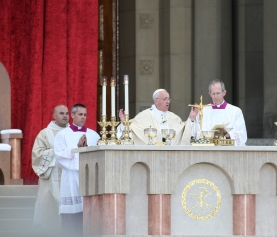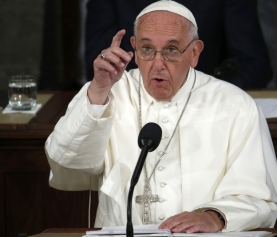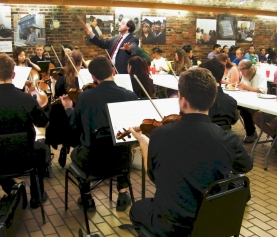
Linda Plitt Donaldson: Pope Francis Inspires Others to Live the Truth
With the posting of my first blog, I think it might be useful for readers to understand a little bit about my background. I have been on the faculty of the National Catholic School of Social Service for 12 years. Before that, I directed the advocacy, family services, and social justice programs at So Others Might Eat, a local nonprofit homeless services agency. My vocation as a social worker was deeply informed by Catholic social teaching — in particular, the preferential option for the poor, human dignity, the common good, and solidarity. My adult spiritual life is rooted in the Ignatian tradition, but Franciscan spirituality has also influenced my prayer life and way of being in the world.
The election and subsequent spiritual leadership of Pope Francis has inspired hundreds of millions of people across the globe. Nearing 20 million followers as of April 2015, he is the second most followed world leader on Twitter and is considered the most influential world leader, as evidenced by nearly 10,000 and 8,000 average daily retweets of his Spanish and English postings, respectively.
For someone who has worked on issues of poverty and homelessness for at least 22 years, Pope Francis offers a deeply inspiring vision for the Church and for the world. Large percentages of Catholics and non-Catholics (including those with no religious affiliation) admire the Pope and his message for humanity. Many people have asked me to what I attribute Pope Francis’s popularity. For me, it is his authentic and radical commitment to living (and thereby teaching) the gospel values rooted in the life and teachings of Jesus Christ, a way of living reflected in the life of St. Francis of Assisi, whom Pope Francis described as “the man of poverty, the man of peace, the man who loves and protects creation,” qualities that led Pope Francis to select the name Francis.
Pope Francis is focusing the world’s attention on the basics of living the Truth: the inherent dignity of all people, the urgency of transforming social conditions so all can thrive (common good), the importance of solidarity among all peoples (knowing deeply that our own well-being is bound to the well-being of others), the need for families and communities to be supported in a way that they can address their own needs (subsidiarity), and the moral obligation to ensure that people who are poor, vulnerable, and suffering are central to our concern, for that is the ultimate measure of a just society. Catholics will recognize these fundamental aspects of living the Truth as core principles of Catholic social teaching.
And social workers will see echoes of these principles in our professional Code of Ethics, whose core values are service, social justice, dignity of the human person, the importance of human relationships, integrity, and competence. Schools of social work located in Catholic universities are often considered the academy’s institutional expression of the Church’s dual mission of service and justice. Pope Francis is focusing the vision of the Church and the world on this mission, our responsibility to one another through service and justice, which makes manifest our deep and abiding love for God. In this blog, I am excited to anticipate his visit by amplifying many of the themes of social transformation the Pope is calling for.
– Linda Plitt Donaldson is an associate professor at The Catholic University of America National Catholic School of Social Service.








